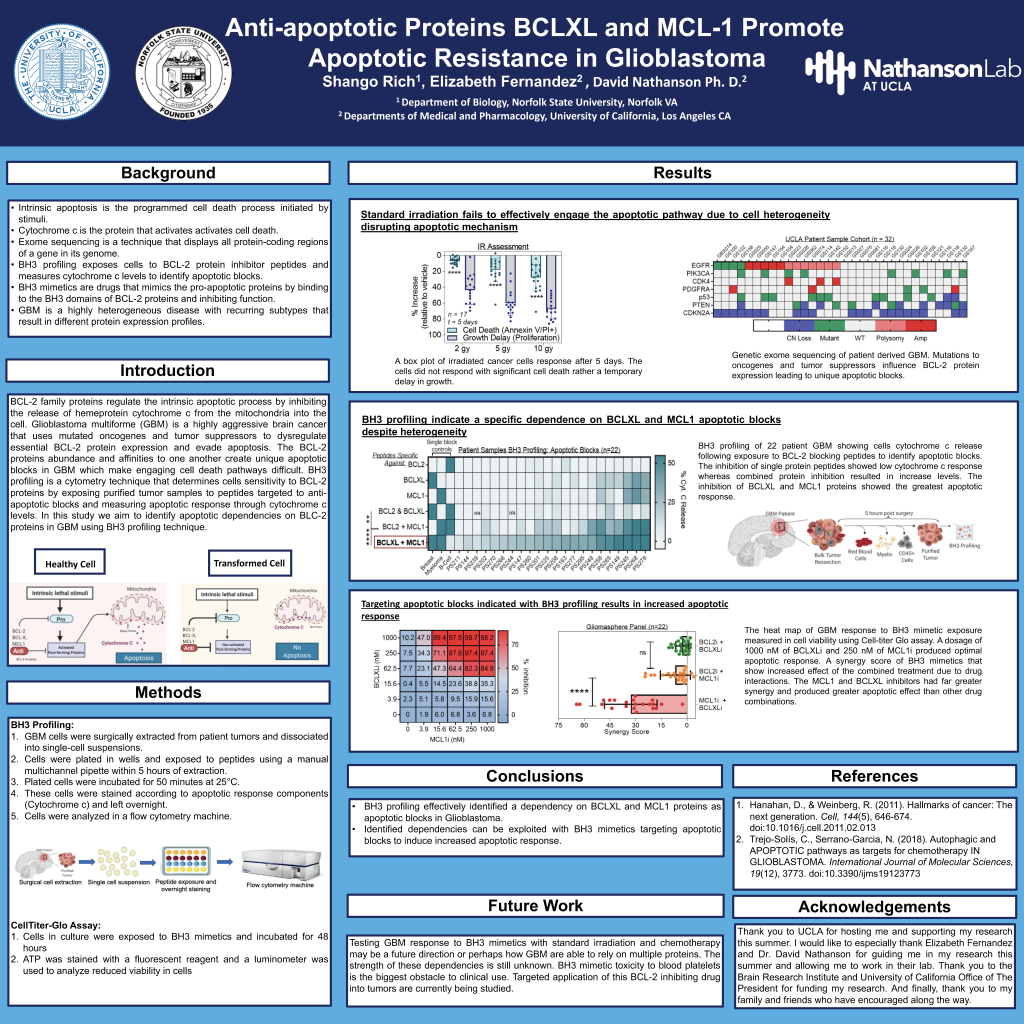
Shango Rich
Abstract:
Cancer cells resist apoptosis, cell death, by manipulating the expression of anti-apoptotic BCL-2 family proteins. These BCL-2 proteins block the release of hemeprotein cytochrome c from the mitochondria by preventing pore formation on the mitochondrial membrane. Cancer’s heterogeneity creates unique apoptotic blocks with these BCL-2 proteins that make apoptosis inducing treatments like irradiation minimally engage the apoptotic pathway. Exome sequencing of glioblastoma multiforme (GBM) cells illustrated mutations to oncogenes and tumor suppressors in the cell dysregulate the apoptotic dependence cells have to BCL-2 proteins. Using a technique called BH3 profiling, we subjected GBM cells to BH3 mimetics, BCL-2 inhibiting peptides, and measured cytochrome c release and identified a particular dependence on BCLXL and MCL-1 proteins. A synergy score of the peptides found that the BCLXL and MCL-1 inhibitors had far greater total effect than the other mimetics. Careful titration of these mimetics in GBM showed dosage of 1000 nM of BCLXLi and 250 nM of MCL-1i for optimal apoptotic response. We found that GBM apoptosis has a dependency on BCLXL and MCL-1 proteins and BH3 profiling can effectively predict apoptotic response to BH3 mimetics. Understanding the apoptotic mechanisms of GBM and use of BH3 assay to identify apoptotic dependencies may better advise the therapeutic strategies for this cancer.

